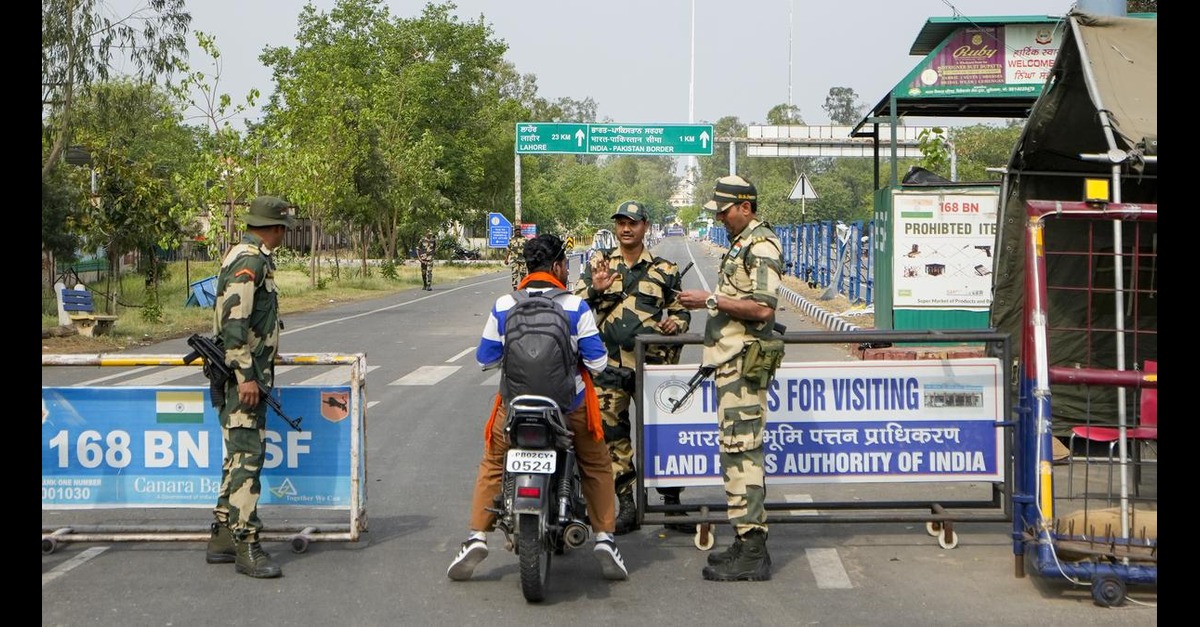ABSTRACT
The very recent terror attack in Pahalgam , Jammu and Kashmir, has once again raised an alarm regarding cross-border terrorism and its growing association with separatist factions like Khalistan extremists. In a sudden yet strategic move , the Government of Pakistan announced its decision to repatriate its stranded citizens from India. This article explores the geopolitical ramifications of this development, especially in light of the increasing tensions between the two nations and the possible use of religious extremism as a tool of proxy conflict.
INTRODUCTION
On the 29th of April 2025 a group of heavily armed militants launched a very surprised assault on a tourist convoy in Pahalgam , killing 12 civilians and injuring more than 30. The attack swiftly condemned by the international community, has been traced back to Pakistan-based terror group Lashkar-e-Taiba. As Indian intelligence links the attack to wider separatist networks active in Punjab and supported by foreign actors, Pakistan’s Ministry of Foreign Affairs announced the repatriation of all Pakistani nationals stranded in India citing “security concerns.” While the stated reason was the safety of Pakistani citizens, the move has sparked diplomatic uproar in India and abroad, raising concerns about deeper covert activities.
KEYWORDS
Pahalgam terror attack, Khalistan, Pakistan, repatriation, Lashkar-e-Taiba, separatism, cross-border terrorism.
MAIN BODY
The Pahalgam attack is not just an isolated incident but part of a very well-coordinated pattern of violence intended to destabilize the region and undermine the Indian government’s authority in Jammu and Kashmir. Following the abrogation of Article 370 incidents of terror had seen a relative decline , but the April 2025 strike suggests the resurgence of radical elements. Intelligence reports confirm the presence of Pakistani handlers directing attacks via encrypted channels.
Interestingly, Indian authorities have also uncovered that several members of the pro-Khalistan movement once largely limited to Canada and the UK were recently in contact with suspects involved in this attack. These revelations have added fuel to suspicions of a growing axis between Pakistan’s ISI and Khalistani fringe groups. In this context, Pakistan’s decision to repatriate its citizens has raised eyebrows. While the official stance refers to “escalating hostility and fear for the lives of Pakistani nationals,” the move is being interpreted by Indian officials as an attempt to extract potential collaborators before counterintelligence agencies can act.
Diplomatic circles are also interpreting this move as a veiled protest against India’s intensified scrutiny over religious gatherings and cross-border travel from Punjab and Kashmir. It has been reported that certain Pakistani nationals overstaying their visas in Amritsar and Delhi were under surveillance for suspicious fund transfers and encrypted communication.
The Khalistan movement, though without mass public support within India, has witnessed an uptick in foreign funding and online propaganda. India’s Ministry of External Affairs issued a formal protest, terming Pakistan’s repatriation act as “politically motivated” and a “diversion tactic to avoid accountability in global forums.”
CONCLUSION
The repatriation of Pakistani citizens amid the fallout of the Pahalgam terror attack reflects not just a security measure but a calculated diplomatic signal. It complicates ongoing peace dialogues and strengthens India’s claim about Pakistan’s complicity in terror activities. The interlinking of Pakistan based terror outfits and Khalistani separatists marks a new phase of hybrid warfare that challenges traditional notions of insurgency and diplomacy. With mounting international pressure and upcoming UN discussions on South Asian stability, this episode is expected to have a ripple effect across geopolitical corridors.
“PRIME LEGAL is a full-service law firm that has won a National Award and has more than 20 years of experience in an array of sectors and practice areas. Prime legal falls into the category of best law firm, best lawyer, best family lawyer, best divorce lawyer, best divorce law firm, best criminal lawyer, best criminal law firm, best consumer lawyer, best civil lawyer.”
WRITTEN BY PRIYANKA DESHIKAN.


